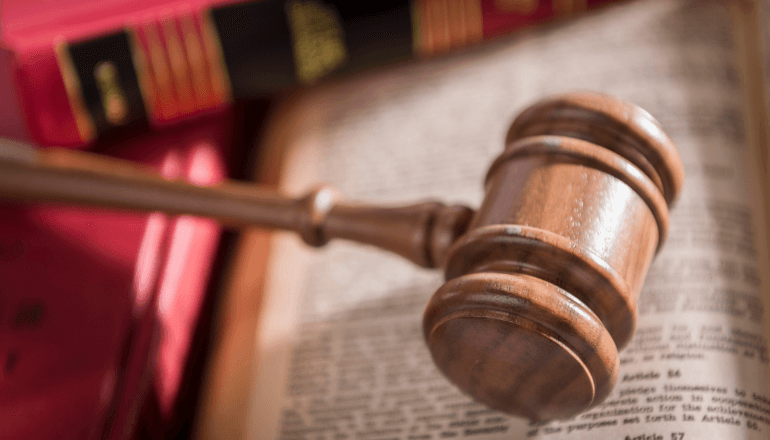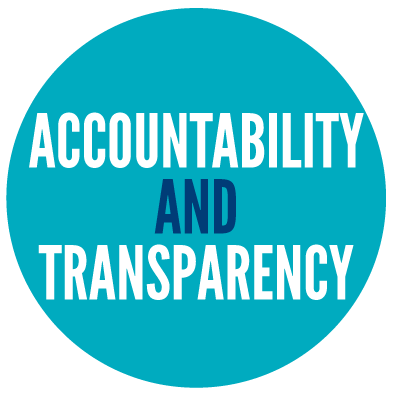Examining the Role of the Judicial in Interpreting and Ensuring the Law
This article delves into the multifaceted responsibilities of the judiciary in interpreting and enforcing the law, emphasizing its significance in preserving the core tenets of a just and fair society.

The Crucial Role of the Judiciary in Interpreting and Enforcing the Law
In a democratic society governed by the rule of law, the judiciary plays a pivotal role in ensuring justice, maintaining order, and upholding the principles upon which the legal system is built. This role involves not only interpreting and applying the law but also enforcing it. This article delves into the multifaceted responsibilities of the judiciary in interpreting and enforcing the law, emphasizing its significance in preserving the core tenets of a just and fair society.
Interpreting the Law
Guardian of the Constitution: One of the most fundamental roles of the judiciary is interpreting the constitution. The judiciary acts as a guardian of the constitution, ensuring that all government actions, laws, and regulations conform to the supreme law of the land. This includes safeguarding individual rights, maintaining the balance of powers, and addressing any constitutional conflicts.
Statutory Interpretation: Beyond the constitution, judges also interpret statutes and regulations enacted by legislatures. They decipher the intent of lawmakers and apply these laws to specific cases. This process requires a nuanced understanding of legal principles, precedent, and the evolving societal context.
Case Law Development: Judicial decisions create case law, which contributes to the evolution of legal principles and standards. Courts at various levels issue rulings that become precedents for future cases, providing clarity and consistency in the application of the law.
Enforcing the Law
Adjudication: The judiciary is the primary branch responsible for resolving disputes between individuals, entities, and the government. It ensures that justice is served by applying the law to specific cases, determining liability, and issuing appropriate remedies.
Checks and Balances: The judiciary serves as a crucial check on the other branches of government?executive and legislative. Through the power of judicial review, courts can declare government actions or laws unconstitutional, preventing overreach and abuses of power.
Criminal Justice: In the criminal justice system, the judiciary plays a pivotal role in protecting the rights of the accused while ensuring the punishment of the guilty. Fair trials, due process, and the principle of "innocent until proven guilty" are upheld through the judicial process.
Civil Rights and Liberties: Courts often hear cases related to civil rights and liberties, ensuring that individuals are protected from discrimination, censorship, and other infringements on their freedoms. Landmark decisions have shaped the course of civil rights movements.
Enforcement of Judgments: After a court has rendered a judgment, it falls upon the judiciary to ensure the enforcement of that judgment. This may involve overseeing the collection of fines, arranging custody arrangements, or ordering specific performance of contracts.
Challenges Faced by the Judiciary
Backlog of Cases: Many judiciaries grapple with a backlog of cases, leading to delays in justice delivery. Overcoming this challenge requires the allocation of resources, improved case management, and, in some cases, legal reforms.
Resource Constraints: Budgetary constraints and limited resources can hinder the judiciary's ability to fulfill its role effectively. Investment in infrastructure, technology, and personnel is essential for an efficient and responsive legal system.
Public Perception and Trust: Public perception of the judiciary's impartiality and integrity is critical. Maintaining trust in the judiciary requires transparency, accountability, and a commitment to upholding the rule of law.
Complex Legal Issues: As society evolves, legal issues become increasingly complex. Judges must continuously educate themselves on emerging legal challenges and adapt their interpretations accordingly.
The Evolving Role of the Judiciary
As societies evolve and face new challenges, the role of the judiciary continues to evolve as well. Several factors contribute to this ongoing transformation:
Technology and Cybersecurity: The digital age has introduced complex legal issues related to technology and cybersecurity. Courts are now tasked with interpreting and applying laws to address matters such as online privacy, data breaches, and digital intellectual property. Judges must stay abreast of rapidly changing technological advancements to make informed decisions.
Globalization: Globalization has led to increased interconnectedness between nations, resulting in more international disputes. Judges often deal with cases involving cross-border issues, trade agreements, and international law. This requires an understanding of both domestic and international legal frameworks.
Environmental Concerns: Environmental issues, including climate change, have become pressing global concerns. The judiciary is increasingly called upon to adjudicate cases related to environmental regulations, conservation, and sustainability. Judges must grapple with the complex intersection of science, policy, and law in these cases.
Social Justice: The judiciary plays a crucial role in addressing social justice issues such as racial and gender discrimination, LGBTQ+ rights, and economic disparities. Courts are instrumental in interpreting and applying anti-discrimination laws and ensuring equal protection under the law.
Emerging Legal Fields: New legal fields, such as artificial intelligence (AI) ethics, bioethics, and space law, pose unique challenges for the judiciary. Judges are tasked with establishing legal precedents and guidelines in these emerging areas, often in the absence of clear statutory law.
Challenges and Responsibilities
While the evolving role of the judiciary brings new challenges, it also underscores the judiciary's enduring responsibilities:
Judicial Independence: To function effectively, the judiciary must remain independent from political pressures and undue influence. Protecting judicial independence is vital to upholding the rule of law and maintaining public trust.
Continual Education: Judges and legal professionals must engage in ongoing education to keep pace with changes in law and society. This includes attending seminars, workshops, and legal conferences to stay informed about emerging legal trends.
Access to Justice: Ensuring access to justice for all citizens remains a central challenge. Efforts to streamline court processes, reduce costs, and provide legal aid to those in need are essential for a fair and inclusive legal system.
Promoting Alternative Dispute Resolution: Encouraging alternative dispute resolution mechanisms, such as mediation and arbitration, can help reduce the burden on the judicial system and expedite the resolution of disputes.
Enhancing Transparency: Transparency in judicial proceedings, including public access to court records and decisions, is critical for accountability and maintaining public confidence in the judiciary.
The judiciary's role in interpreting and enforcing the law is dynamic and multifaceted, reflecting the ever-changing nature of society and the legal landscape. While challenges persist, such as case backlog and resource constraints, the judiciary remains an essential pillar of democracy, justice, and the rule of law.
As the judiciary adapts to new legal frontiers, embraces technology, and confronts complex global issues, its commitment to impartiality, fairness, and upholding the law's spirit is unwavering. Society's trust in the judiciary relies on its ability to navigate these challenges while safeguarding the principles upon which democratic societies are built. Recognizing and supporting the judiciary's evolving role is paramount for the continued advancement of justice and the protection of individual rights and freedoms.
What's Your Reaction?





















